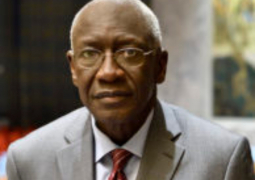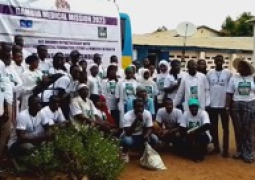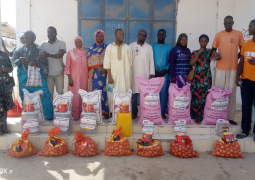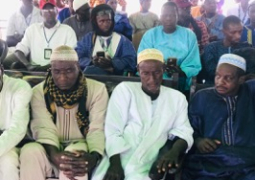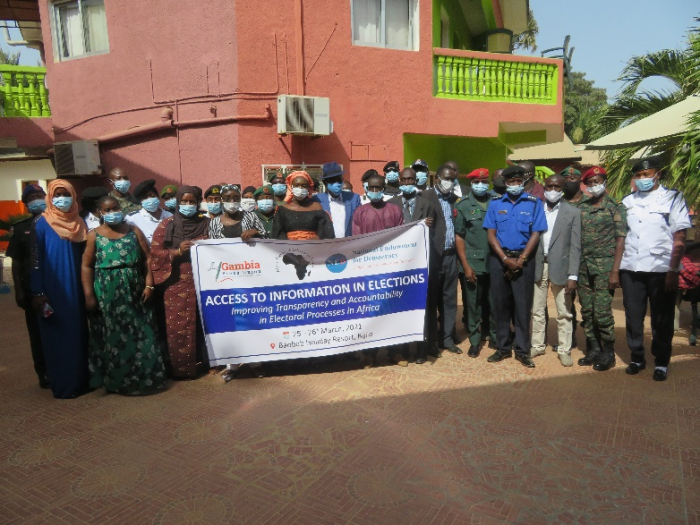
The training is part of GPU’s project with Africa Information Centre (AFIC) on Access to Information and Elections in Africa.
The project aims to improve Transparency and Accountability in Election Processes in Africa. This project is jointly implemented in The Gambia, Zambia and Uganda, and funded by the National Endowment for Democracy (NED).
Recently, The Gambia Press Union also engaged Civil Society Organizations and journalists on a two-day training on Access to Information, which is also part of the project.
GPU president Sheriff Bojang Jnr described the national Independent Electoral Commission and the security forces as key stakeholders in the electoral cycle.
“This is a very critical year in The Gambia because this is an election year and citizens in their quest to make informed choices would have to benefit from transparency and accountability throughout the process”, he said.
The GPU president said the significance of the Electoral Commission cannot be less strong because it is the electoral body that conducts elections all the way.
“People need to scrutinize, people need to have the confidence and trust in the fact that only eligible Gambians have registered to vote and that the elections are free from rigging, fear and all forms of fraud”, he also said.
However, he said, the role of the security is of paramount importance adding that, in dealing with issues of transparency and accountability, there is always the security forces between those who inform the journalists and the citizenry.
“We feel, it is important that we train security forces and members of the armed forces on the significance of accountability and transparency in relation to access to information,” it further said.
John Charles Njie, Chairman of the Civil Society Coalition on Access to Information, said it was important that Gambians work together to enhance access to information. He said this will allow all stakeholders to play an effective role in the development of the country.
“The collaboration between civil society and the Gambia government, which resulted in a draft access to information law currently before lawmakers, is something we should be proud of,” Njie said.
In her remarks on behalf of Deputy Inspector General of Police, Commissioner Sireh Jabang, said the assurance of impartiality during an election year is essential to the attainment of the participants’ confidence and commitment to the electoral process.
“The institutions responsible for the administration and security of an election must fulfill their mandate, and they must remain impartial. Therefore, this training on access to information and elections is timely,” she said.
Chairman of the IEC, Alieu Momarr Njai, said “the IEC’s mandate centres around policies that promote freedom, fairness and transparency.”
“In this regard, transparency calls for the dissemination of timely and accurate information to all stakeholders in the electoral process,” he said.
Mr. Njai also hailed the media as playing a very positive role in the success of previous elections, especially in the area of information dissemination. “Whatever is done in the election process is greatly influenced by the quantity and quality of electoral information that voters have been given access to,” he said.


